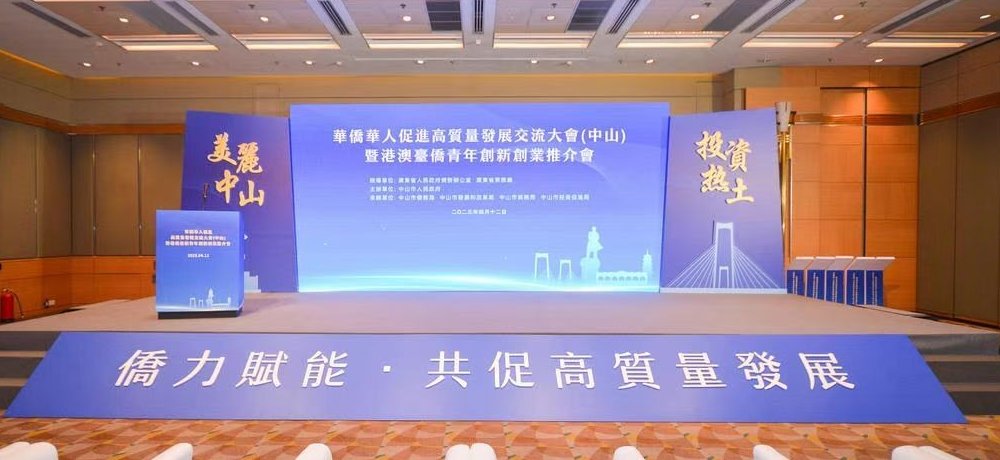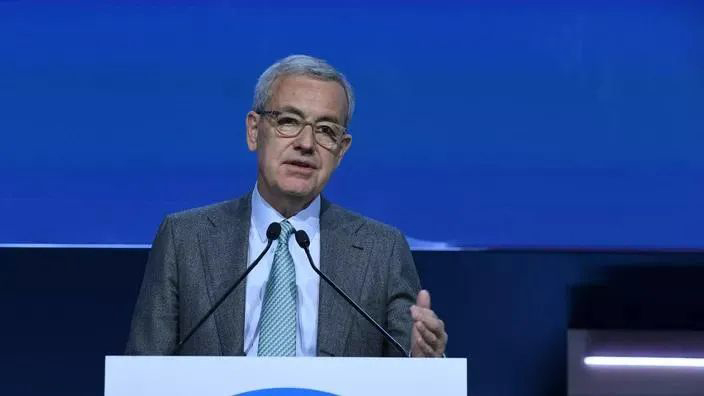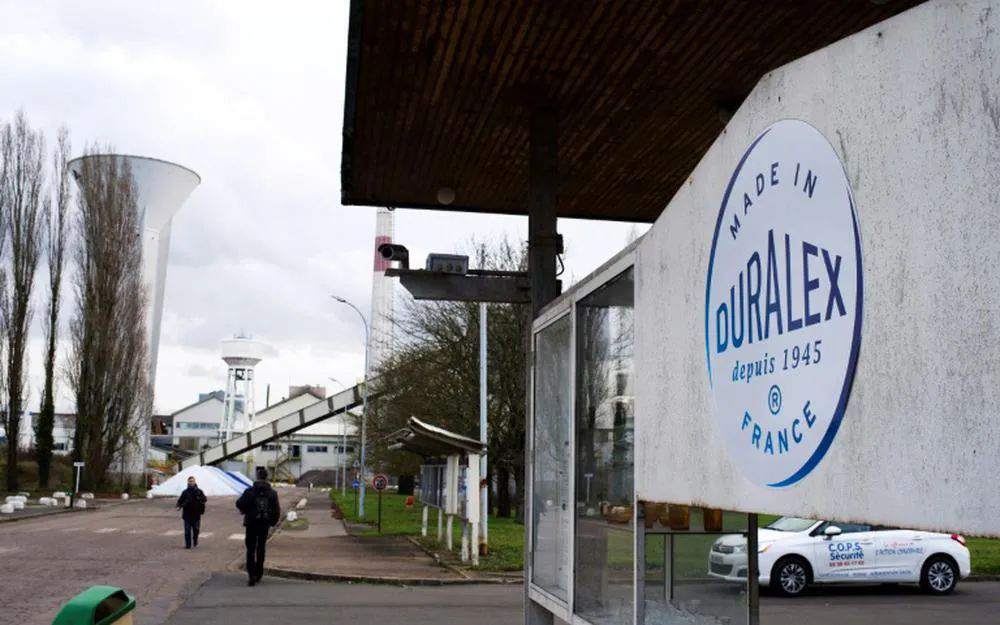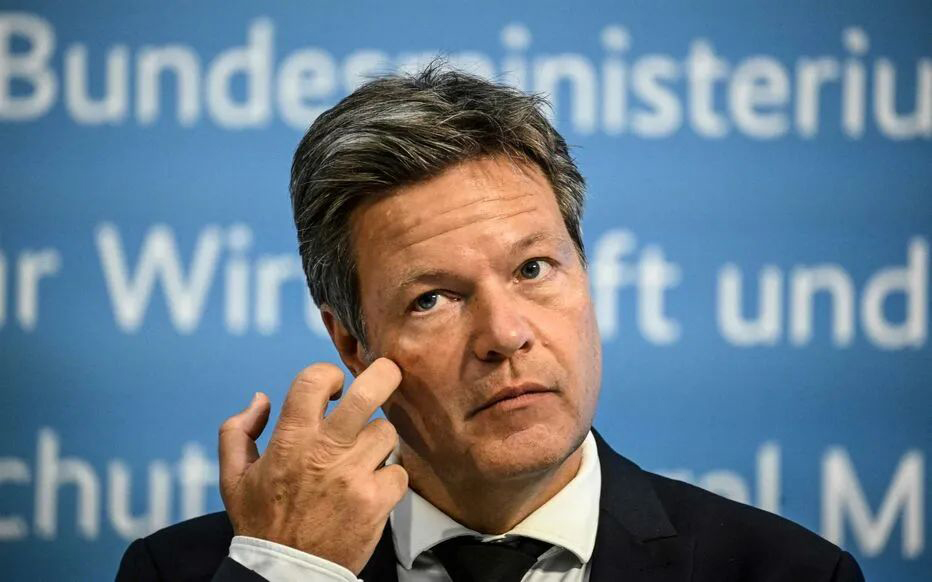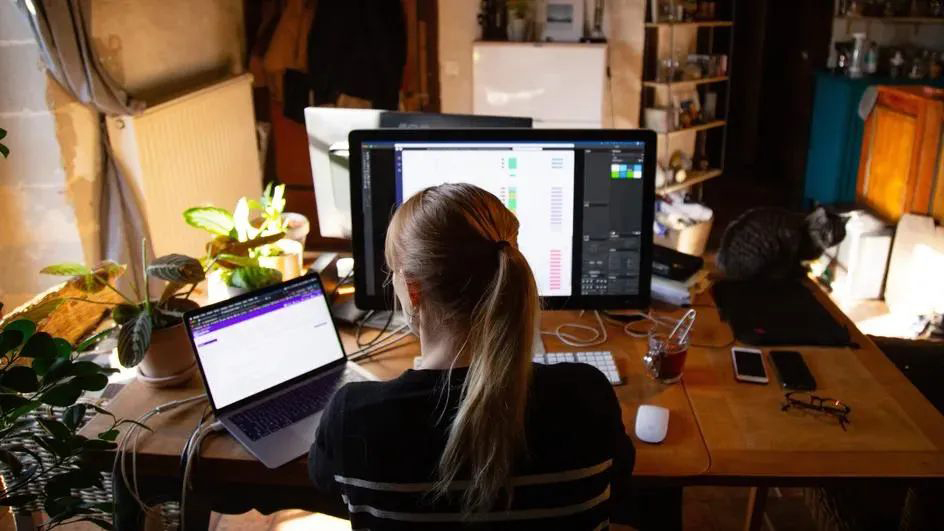Recent Posts
-
Hong Kong International Lighting Fair (Autumn Edition) 2023
Hong Kong International Lighting Fair (Autumn Edition) 2023
10/07/2023
-
Join Us on a Journey of Illumination at the 2024 Hong Kong Lighting Fair!
Join Us on a Journey of Illumination at the 2024 Hong Kong Lighting Fair!
03/20/2024
-
agnetic Track Light Revolutionizes Lighting Industry - OBALS
Discover how OBALS's Magnetic Track Light is revolutionizing the lighting industry with cutting-edge technology, easy installation, flexibility, and sustainability.
11/21/2023
-
Zhongshan lighting shines all over the world
Zhongshan lighting shines all over the world "Zhongshan Smart Lighting Pavilion" debuted at the Hong Kong International Spring Lighting Fair
04/14/2023
-
Polishing up the golden signboard of the hometown of overseas Chinese, overseas Chinese in Zhongshan gather in Hong Kong to seek high-quality development
Polishing up the golden signboard of the hometown of overseas Chinese, overseas Chinese in Zhongshan gather in Hong Kong to seek high-quality development
04/13/2023
-
INTERNATIONAL LIGHTING FAIR (Spring Edition)The HongKong
INTERNATIONAL LIGHTING FAIR (Spring Edition)The HongKong
04/04/2023
Factories shut down and universities closed just to save energy? Chairman of the French Gas Group: Whether the gas is enough depends on China!
Jean-Pierre Clamadieu, chairman of the French Engie Gas Group, warned on September 21 that energy saving alone may not ensure a smooth winter in France, but also depends on how the weather is this winter and whether China continues to implement the "dynamic zero" policy . French media pointed out that many companies in France have been forced to cut production and stop production due to high energy prices, and may even go out of business. Under the inflation and energy crisis, French universities may have to pay 2 million to 7 million euros more in energy bills this winter. Many universities hope to reduce electricity and heating expenses by extending holidays and online classes.
1. Energy saving is not enough to guarantee France's energy security this winter
When talking about the energy crisis this winter on the France Inter radio program that day, Clamadieu reiterated that small changes in people's daily habits have a major impact on energy saving, especially lowering the heating temperature. % of gas consumption”. He appealed to the public to heed the government's call to limit the indoor heating temperature to less than 19°C this winter, in order to achieve the energy-saving goal of reducing gas consumption by 10%.
However, the chairman of Engie Group also warned that even if the whole people comply with energy-saving measures, it may not be able to ensure a smooth winter in France. In his view, energy security this winter depends on the following two conditions:
1. Is it a "warm winter"? If it is a warm winter, the heating demand will be relatively limited;
2. Will China continue to insist on "dynamic clearing"? Affected by the epidemic prevention policy, China's natural gas demand fell by 5% year-on-year in the second quarter of this year, which caused many liquefied natural gas (LNG) ships to return to Europe. "Currently receiving 30-40 LNG ships a week, compared to a dozen a week ago a year ago." Kramadieu pointed out that these LNG have filled some of the gaps in Russia's supply cut to Europe. If Chinese demand remains stable in the short term, French gas reserves are expected to reach 100% in "a few weeks' time," he said.
In order to "urge" the French to work harder to save energy, the government may raise energy prices. In this regard, Cramadieu pointed out that this measure will have a "huge impact on energy-intensive industries." In fact, the impact of soaring energy prices on European industry is already evident: industrial energy consumption is 30% lower than in the same period last year (France -15%). While this is a positive trend for the energy transition, it could be catastrophic for the economy, Clamadieu warned.
Clamadieu is by no means unfounded. "Le Figaro" pointed out that many companies in France have had to cut production and stop production due to high energy prices, and some employees have been "partially unemployed" (chômage partiel). But more worryingly, some businesses could fail because they can't cope with soaring energy costs.
According to La Tribune, about 300 companies may be in trouble by the end of the year due to soaring energy costs, Roland Lescure, deputy minister for industrial affairs at the French economy ministry, said on the 20th.
France's famous Duralex glass factory has decided to put its furnaces on standby for at least four months from November and impose partial unemployment for all employees due to surging energy costs. Duralex's energy expenditure, which was 2 million euros last year, has soared to 13 million euros this year, Lescourt said.
It should be noted that for businesses that have to place an order to buy electricity, although the price per MWh has dropped from more than 1,000 euros on August 26 to 600 euros now, this level is still 12 more expensive than a year ago. times. In response to this, the French employers' association (Medef) has called for caps on the prices of gas and electricity at the European level.
On September 14, European Commission President von der Leyen promised to carry out in-depth reform of the European energy market.
2. Remote work saves energy?
The French "Express" (L'Express) recently reported that the government mentioned at the end of August that in order to achieve the goal of reducing energy consumption by 10% next year, it may encourage the public sector to adopt "large-scale" telecommuting and consider transferring to the private sector. Businesses make similar recommendations.
But what exactly is the energy-saving effect of telecommuting?
The French environment and energy management agency (Ademe) estimates that telecommuting can save companies 19% in energy consumption, but the condition is that all employees work remotely at the same time and the office building is completely closed.
“Obviously this is unrealistic,” said Myriam Maestroni, chairman of the E5T Foundation, a think tank for corporate ecological transformation. “Not to mention, only two-thirds of French people can work from home.”
Geoffroy Roux de Bezieux, president of the Employers' Association Movement for French Enterprise (MEDEF), pointed out that employees are working remotely on a rotational basis, which means offices must be heated and lit without interruption. At the same time, employees who work remotely are turning on the lights and computers at home, heating, and cooking lunch. Myriam Maestroni said that this part of the energy consumption is only "transferred" from the enterprise to the employees' homes. For example, between March and May 2020, when France’s first lockdown, carbon emissions in almost all sectors plummeted—except for housing, where emissions rose by 30 percent, she cited.
In fact, a 2021 study pointed out that lockdowns directly increase household electricity and gas bills by between €18 and €97 per month (depending on the size of the house). Infrastructure economics analyst Lamis Aljounaidi explained that France has 15 million homes with low insulation efficiency, which consume 6 to 9 times more energy than renovated or newly built residential or office buildings.
The government proposed last year a subsidy of 2.50 euros a day for civil servants working from home, and some private companies are doing the same.
However, the French environmental and energy management agency (Ademe) points out that telecommuting can reduce commuting-related carbon emissions by 30%: telecommuting three days a week can reduce carbon emissions by 800kg per person per year.
3. University 'closed' for energy saving
According to Franceinfo reports, under the inflation and energy crisis, French universities may have to pay 2 million to 7 million euros more in energy bills this winter. Therefore, many universities are trying to open less doors to reduce electricity and heating expenses.
Michel Deneken, president of the University of Strasbourg, announced on the 19th that the university will be closed for two more weeks this winter: the new academic year originally scheduled to start on January 3 after the Christmas holiday has been postponed to 1 On the 9th of February, all administrative departments will be closed and no teaching activities will be organized; in February, there will be another week of remote teaching. In Rouen, the university recommends that students do internships in advance so that they do not need to go to school in winter; some schools turn down the heating, but this is obviously not enough. Many schools are planning to switch to online classes, and the school in Lille has partially closed.
In this regard, Pascal Maillard, representative of the Strasbourg University Teachers' Union (Snesup-FSU), believes that schools should save energy by "turning down the heating in open spaces such as corridors", rather than banning students from coming to school. Because the conditions of the student dormitories are usually terrible too. Imane Ouelhadj, president of UNEF, the second French student union, criticized that it was unwise to lower the heating in the classroom to 19°C. "Teachers are wrapped in blankets on the podium to give lectures, and students are shivering while listening to the class. No one can live in such conditions. Study with peace of mind."
In addition, the university teachers' union is also concerned that the suspension of classes and online classes will lead to a decline in the quality of teaching. Some student unions also pointed out that many students still have "lingering fears" about the experience of online classes during the epidemic, especially when it is impossible to guarantee that everyone has a smooth network.



